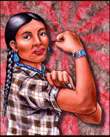 By Andrea Smith, Unsettling Ourselves
By Andrea Smith, Unsettling Ourselves
We often hear the mantra in indigenous communities that Native women aren’t feminists. Supposedly, feminism is not needed because Native women were treated with respect prior to colonization. Thus, any Native woman who calls herself a feminist is often condemned as being “white.”
However, when I started interviewing Native women organizers as part of a research project, I was surprised by how many community-based activists were describing themselves as “feminists without apology.” They were arguing that feminism is actually an indigenous concept that has been co-opted by white women.
The fact that Native societies were egalitarian 500 years ago is not stopping women from being hit or abused now. For instance, in my years of anti-violence organizing, I would hear, “We can’t worry about domestic violence; we must worry about survival issues first.” But since Native women are the women most likely to be killed by domestic violence, they are clearly not surviving. So when we talk about survival of our nations, who are we including?
These Native feminists are challenging not only patriarchy within Native communities, but also white supremacy and colonialism within mainstream white feminism. That is, they’re challenging why it is that white women get to define what feminism is.
DECENTERING WHITE FEMINISM
The feminist movement is generally periodized into the so-called first, second and third waves of feminism. In the United States, the first wave is characterized by the suffragette movement; the second wave is characterized by the formation of the National Organization for Women, abortion rights politics, and the fight for the Equal Rights Amendments. Suddenly, during the third wave of feminism, women of colour make an appearance to transform feminism into a multicultural movement.
This periodization situates white middle-class women as the central historical agents to which women of colour attach themselves. However, if we were to recognize the agency of indigenous women in an account of feminist history, we might begin with 1492 when Native women collectively resisted colonization. This would allow us to see that there are multiple feminist histories emerging from multiple communities of colour which intersect at points and diverge in others. This would not negate the contributions made by white feminists, but would de-center them from our historicizing and analysis.
Indigenous feminism thus centers anti-colonial practice within its organizing. This is critical today when you have mainstream feminist groups supporting, for example, the US bombing of Afghanistan with the claim that this bombing will free women from the Taliban (apparently bombing women somehow liberates them).
CHALLENGING THE STATE
Indigenous feminists are also challenging how we conceptualize indigenous sovereignty — it is not an add-on to the heteronormative and patriarchal nationstate. Rather it challenges the nationstate system itself. Charles Colson, prominent Christian Right activist and founder of Prison Fellowship, explains quite clearly the relationship between heteronormativity and the nation-state. In his view, samesex marriage leads directly to terrorism; the attack on the “natural moral order” of the heterosexual family “is like handing moral weapons of mass destruction to those who use America’s decadence to recruit more snipers and hijackers and suicide bombers.”
Similarly, the Christian Right World magazine opined that feminism contributed to the Abu Ghraib scandal by promoting women in the military. When women do not know their assigned role in the gender hierarchy, they become disoriented and abuse prisoners.
Implicit in this is analysis the understanding that heteropatriarchy is essential for the building of US empire. Patriarchy is the logic that naturalizes social hierarchy. Just as men are supposed to naturally dominate women on the basis of biology, so too should the social elites of a society naturally rule everyone else through a nation-state form of governance that is constructed through domination, violence, and control.
As Ann Burlein argues in Lift High the Cross, it may be a mistake to argue that the goal of Christian Right politics is to create a theocracy in the US. Rather, Christian Right politics work through the private family (which is coded as white, patriarchal, and middle-class) to create a “Christian America.” She notes that the investment in the private family makes it difficult for people to invest in more public forms of social connection.
For example, more investment in the suburban private family means less funding for urban areas and Native reservations. The resulting social decay is then construed to be caused by deviance from the Christian family ideal rather than political and economic forces. As former head of the Christian Coalition Ralph Reed states: “The only true solution to crime is to restore the family,” and “Family break-up causes poverty.”
Unfortunately, as Navajo feminist scholar Jennifer Denetdale points out, the Native response to a heteronormative white, Christian America has often been an equally heteronormative Native nationalism. In her critique of the Navajo tribal council’s passage of a ban on same-sex marriage, Denetdale argues that Native nations are furthering a Christian Right agenda in the name of “Indian tradition.”
This trend is equally apparent within racial justice struggles in other communities of colour. As Cathy Cohen contends, heteronormative sovereignty or racial justice struggles will effectively maintain rather than challenge colonialism and white supremacy because they are premised on a politics of secondary marginalization. The most elite class will further their aspirations on the backs of those most marginalized within the community.
Through this process of secondary marginalization, the national or racial justice struggle either implicitly or explicitly takes on a nation-state model as the end point of its struggle – a model in which the elites govern the rest through violence and domination, and exclude those who are not members of “the nation.”
NATIONAL LIBERATION
Grassroots Native women, along with Native scholars such as Taiaiake Alfred and Craig Womack, are developing other models of nationhood. These articulations counter the frequent accusations that nation- building projects necessarily lead to a narrow identity politics based on ethnic cleansing and intolerance. This requires that a clear distinction be drawn between the project of national liberation, and that of nation-state building.
Progressive activists and scholars, while prepared to make critiques of the US and Canadian governments, are often not prepared to question their legitimacy. A case in point is the strategy of many racial justice organizations in the US or Canada, who have rallied against the increase in hate crimes since 9/11 under the banner, “We’re American [or Canadian] too.”
This allegiance to “America” or “Canada” legitimizes the genocide and colonization of Native peoples upon which these nation-states are founded. By making anti-colonial struggle central to feminist politics, Native women place in question the appropriate form of governance for the world in general. In questioning the nation-state, we can begin to imagine a world that we would actually want to live in. Such a political project is particularly important for colonized peoples seeking national liberation outside the nation- state.
Whereas nation-states are governed through domination and coercion, indigenous sovereignty and nationhood is predicated on interrelatedness and responsibility.
As Sharon Venne explains, “Our spirituality and our responsibilities define our duties. We understand the concept of sovereignty as woven through a fabric that encompasses our spirituality and responsibility. This is a cyclical view of sovereignty, incorporating it into our traditional philosophy and view of our responsibilities. It differs greatly from the concept of Western sovereignty which is based upon absolute power. For us absolute power is in the Creator and the natural order of all living things; not only in human beings… Our sovereignty is related to our connections to the earth and is inherent.”
REVOLUTION
A Native feminist politics seeks to do more than simply elevate Native women’s status — it seeks to transform the world through indigenous forms of governance that can be beneficial to everyone.
At the 2005 World Liberation Theology Forum held in Porto Alegre, Brazil, indigenous peoples from Bolivia stated that they know another world is possible because they see that world whenever they do their ceremonies. Native ceremonies can be a place where the present, past and future become copresent. This is what Native Hawaiian scholar Manu Meyer calls a racial remembering of the future.
Prior to colonization, Native communities were not structured on the basis of hierarchy, oppression or patriarchy. We will not recreate these communities as they existed prior to colonization. Our understanding that a society without structures of oppression was possible in the past tells us that our current political and economic system is anything but natural and inevitable. If we lived differently before, we can live differently in the future.
Native feminism is not simply an insular or exclusivist “identity politics” as it is often accused of being. Rather, it is framework that understands indigenous women’s struggles part of a global movement for liberation. As one activist stated: “You can’t win a revolution on your own. And we are about nothing short of a revolution. Anything else is simply not worth our time.”
Andrea Smith is Cherokee and a professor of Native American Studies at the University of Michigan, Ann Arbor, and co-founder of Incite! Women of Color Against Violence and the Boarding School Healing Project.


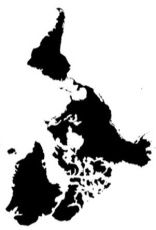

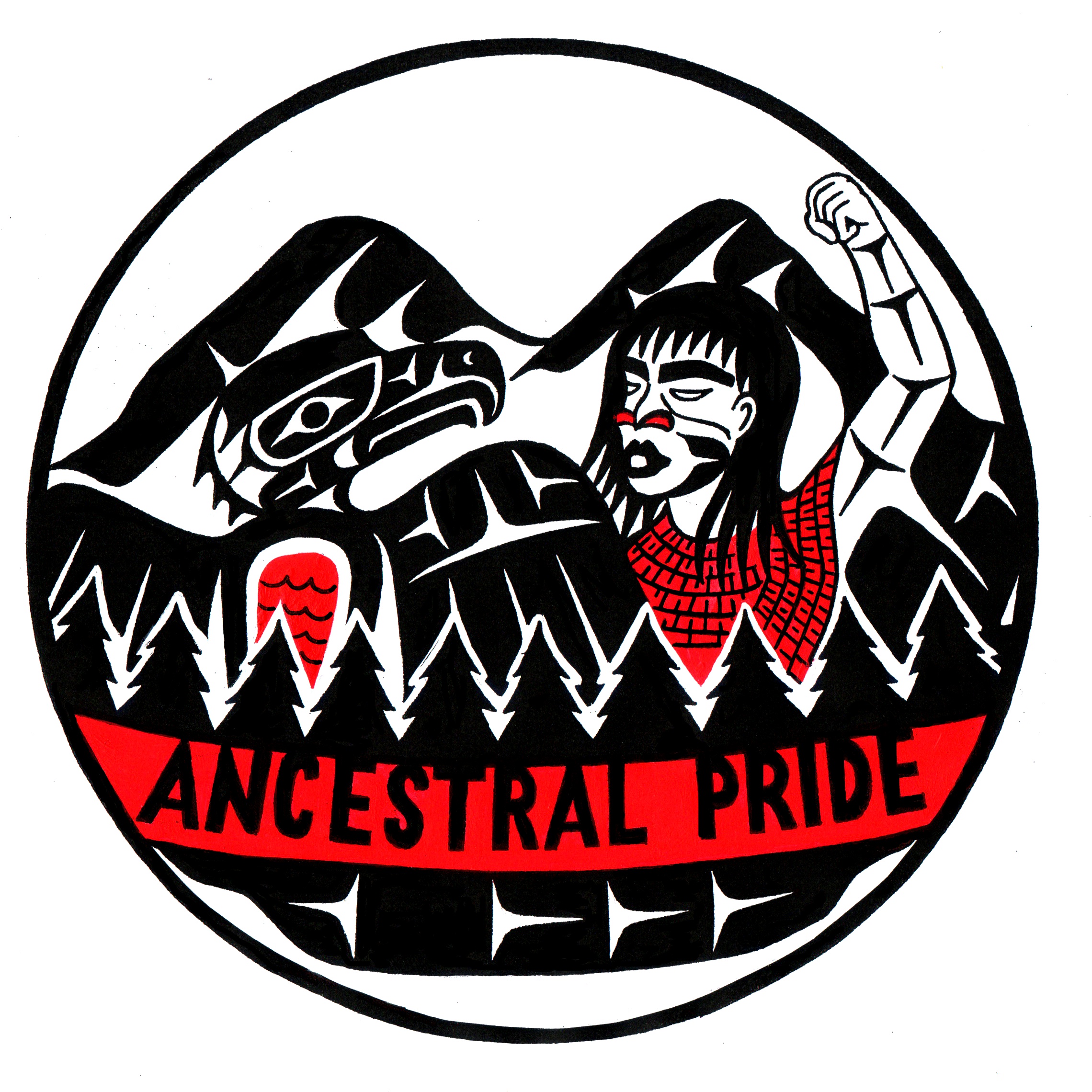





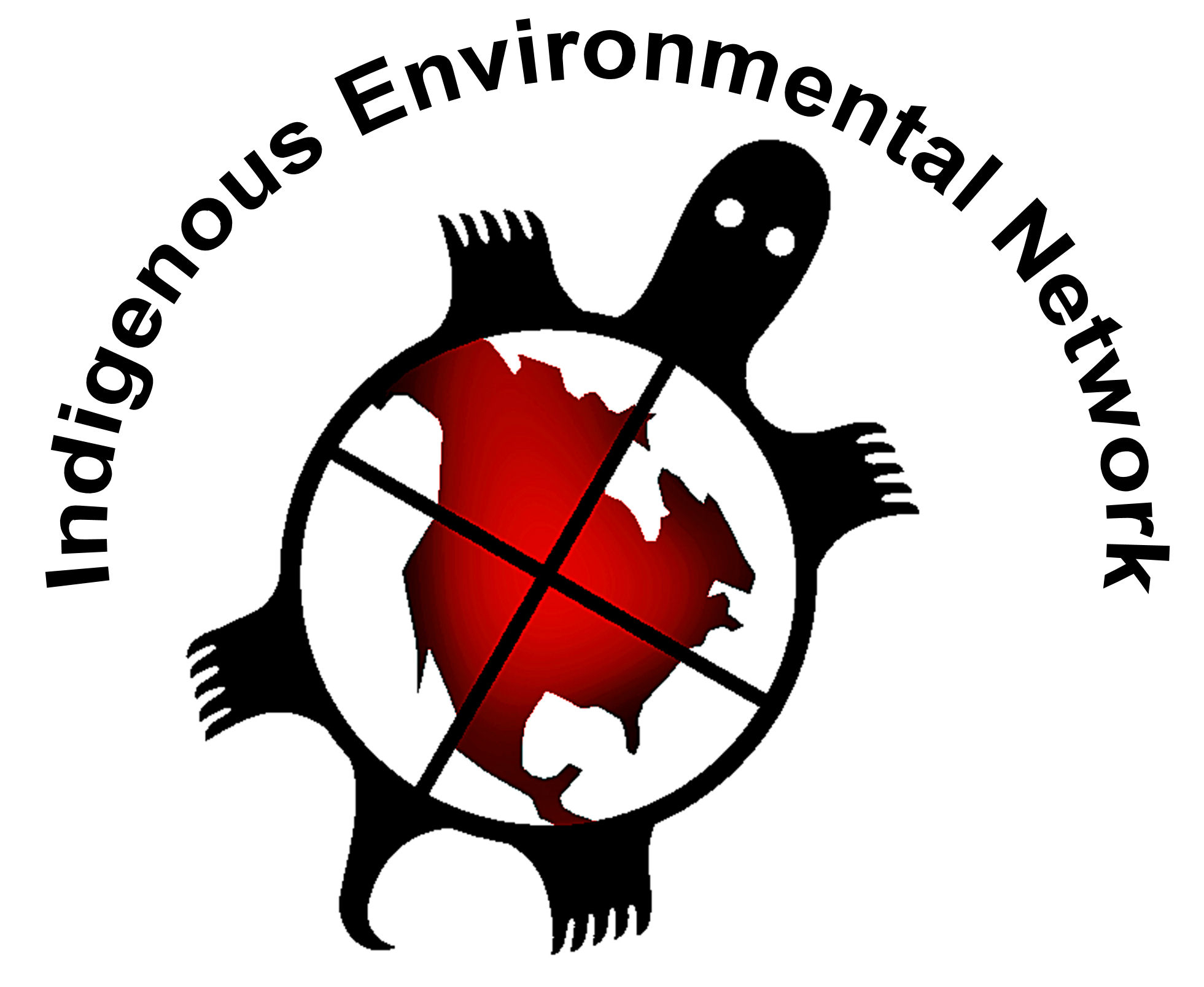


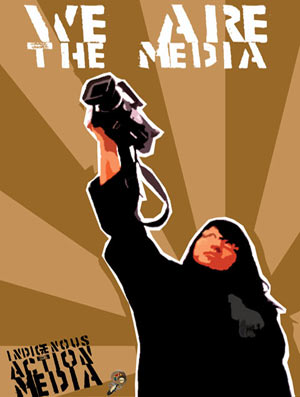













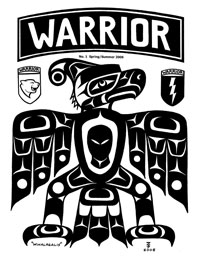


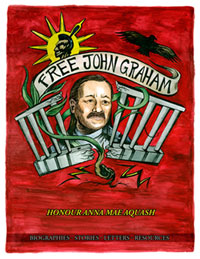



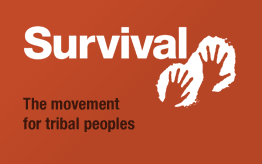


fabulous article, good research, i enjoyed the read
This was an incredible article to read and helped me sort out some of my internal confusion around anti-colonial feminist politics and supporting organizations that do sometimes work within the system and the state. Thank you. This is an article I will share with others.
great article, I would also point out that the feminist movement is often also very Ameri and British-centric. For example the British and Anglo-American sufferage movements being taken as the norm. All sufferage acheived after these Nations is considered late even though by 1940 half the countries in the world did not have sufferage.
All white feminists are doing is working our best from our position. Each woman has to do that. It’s often taken as domjnating the discussion when we’re just speaking from our experience. What else are we supposed to speak from? Many of us view women of other colors and cultures as equally relevant to feminism, although there are some racists, as in any culture. I wish more women of color understood we’re not trying to white-center anything. We just are white.We aren’t opposed to or excluding anyone. Use your own voice and value it! We already do. It’s just tiring being accused of some motives many of us don’t even have.
This was an amazing article. Thank you for fleshing out a complicated and misunderstood issue. I will be sharing this as well. 🙂
Wow. There is a wisdom here I will have to read many times over and think about deeply. Thank you for sharing your thoughts.
Pingback: Andrea Smith on indigenous feminism, empire, and the state « Classics in Feminist Thought
Pingback: Andrea Smith on indigenous feminism and the state | Introduction to Gender & Sexuality Studies
Thanks for a great article. Feminism definitely owes its roots to Indigenous women. It’s no accident that Seneca Falls, NY is known as the “birthplace” of the suffrage movement – the first suffragettes were deeply influenced by empowered role of their neighbors, the women of the Haudenosaunee (Iroquois) nations. There’s a short article on it here: http://www.peacecouncil.net/NOON/Haudwomen.htm
Sally Roesch Wagner has written more fully on the history in published books.
Reblogged this on rematriate.
Pingback: lukupiiri: “Indigenous Feminism Without Apology”, Andrea Smith
what about rejecting altogether that heteronormativity is part of “indian tradition” or indigenous to your thinking or ideology when there is so much evidence that points to the exact opposite.
I’m wanting more! This was great, inspirational. I especially connect with the idea of sovereignty being predicated on interrelation and responsibility. I have more context for understanding the nation-state and identity politics. Thanks!
Pingback: Before It's News
http://www.decolonialtranslation.com/english/white-women-and-the-priviledge-of-solidarity.html
Pingback: Define Feminism « missmovement
Tansi……..
Decent writings.
My feminism includes the many and is based on my indigenous spirituality.
hiy hiy for the posting.
Pingback: Unsettling America: Decolonization in Theory and Practice | Internal Colonialism in the 21st Century: a failure of the Canadian government
Pingback: Indigenous Feminism and Harsha Walia | Examining indigenous rhetorics
Pingback: Indigenous Feminism Without An Apology | Warrior Soaring Spirit
Reblogged this on This Mongrel Land.
Great article. I would also recommend Chandra Mohanty’s “Feminism Without Borders”
Pingback: Indigenous feminism without apology | Milwaukee Muxeres
Reblogged this on Lujayn Alyamani and commented:
Feminism as i understand it ! a great read on indigenous feminism challenging and unsettling white feminism and state-nation !
Pingback: A Thanksgiving Reflection: The Resistance in Remembering | Bluestockings Magazine
Reblogged this on [Modern Times].
Pingback: On #Marxism, #intersectionality & building meaningful solidarity w/ #PoC #WoC | Melissa Fong
Pingback: A Thanksgiving Reflection: The Resistance in Remembering | Bluestockings Redesign
Pingback: Shailene Woodley is Why Feminists Need to Take Over School Boards
Reblogged this on radical tahr and commented:
Very important article. We share different wounds from colonialism and different traditions but this is a crucial part of shared history.
Pingback: Do You See These 10 Everyday Sexisms? — Everyday Feminism
Reblogged this on Postcolonial Perspectives and commented:
I stumbled across this really cool blog post today (it’s from 2011, but so revelant!) and I just thought I’d share with everyone.
Pingback: Feministing Reads: Naomi Klein’s This Changes Everything
Pingback: Every Year is the Year of Feminism | The Talon
Great article. However, it skipped about a bit from feminism to larger sovereignty issues. I would like to see a follow up article now that we are seeing the rise of women beginning movements for indigenous water rights and the Idle No More Movement in Canada. Which I would like to comment on. Being an Ojibwe/Odawa/Pottawatomie/Irish woman and activist, and hand drummer I have personally run into the patriarchy in our own reservations, and denial of the contributions woman have made to the Idle NoMore Movement. Including the outright denial that it was women who founded the movement. The men force the women here away from singing with their hand drums at the protests….it is sickening. We have the very same traditional protocols as our relatives up north, yet the women here shut up and take it, afraid to speak up. I speak up, but I live off rez. It is hard for them as they get bullied all of the time with the patriarchal christian rules claimed as “traditional native” only used as a means of control by the men. I have news for these men, the women know the truth, we know the teachings of our lodges, we are watching you. And we will not tolerate this forever. — Native Sisters/Mothers/Daughters.
Pingback: Seven Times A Feminist Shut It Down (Or Shut My Own Feminist Mouth) | Sanctuary
Pingback: Indigenous feminism without apology | maraahmed.com
For the record, “suffragette” is a derogatory term that was used to ridicule women advocating for voting rights. The historically accurate and far more appropriate term to use is “suffragist.”
Pingback: Woman+ : To be or not to be a Feminist | Identity Crisis
Pingback: Eco-Feminist Appropriations of Indigenous Feminisms and Environmental Violence - The Feminist Wire | The Feminist Wire
Pingback: Connective Tissue Pt 1 | one woman province
Feminism was not co-opted by white women. We have struggled against patriarchy in our cultures since before our men became colonizers, so that’s impossible. We had it before contact with your culture. Rather, I believe this is something all women came up with independently because we all need it.
Please be careful not to demonize white women or take away our positive aspects. We are natives of somewhere too.
The article doesn’t claim that white women co-opted feminism, and as far as I can tell doesn’t do anything even remotely like demonizing white women. It claims that “there are multiple feminist histories emerging from multiple communities” which “would not negate the contributions made by white feminists, but would de-center them from our historicizing and analysis.”
The point is that the story about 3 waves of feminism makes it seem like white women’s feminism is the original and most important version, when really, as you say, many different groups of women came up with it at different times and in different places. The point is that feminism can be for indigenous women too. It’s not all about you, Ashley! Why do you feel the need to make this article about you? Does every article about feminism have to centre on your experience?
Pointing out that white women “are natives of somewhere too” is pretty daft. Sure, we all have ethnic origins. The situations in which some people are called “natives” are ones involving colonization though. It’s a politically charged term, suggesting that the group so identified has been forced out of their traditional lands, and furthermore that they’re considered “primitive”. England has done some nasty things to the Irish, but it’s a bit of an exaggeration to compare that to colonization. (I’m giving you more credit than you likely deserve by coming up with even this flimsy justification.)
It’s also a bit daft to blame colonization only on white men, as though no women were or are complicit too. Thatcher surely was complicit in the Falklands. That’s just one example.
I love your work but I would just like to point out that Laura Bush (via the Bush administration) was responsible for the rhetoric around “liberating” Afghan women via invasion and war (you’ve probably read Lila Abu Lughod’s article on this). Bush as we know, is hardly a feminist. I wonder which feminist groups you are referencing when you speak of their support in invading Afghanistan?
Thank you for this. As a 46 year old white male, I’ve been skeptical of the narrative sold to me by my culture, yet reading articles such as this have helped me understand just how uninformed even the white liberals are. I’ve been questioning this narrative quite a bit lately, and find that white “progressives” are just as defensive and hostile to skepticism as my own christian fundamentalist parents (to be fair, though, I did on more than one occasion refer to western civilization and the myth of progress as “A White Supremacist Rape Fantasy”…perhaps I’m not cut out to be a diplomat). I’ll keep on the lookout for more brothers and sisters who can set this white boy straight. Again, thank you.
Pingback: Naomi Klein discusses upcoming climate justice film on Democracy Now
Reblogged this on Central Oregon Coast NOW and commented:
In Honor of November as Native American Heritage Month
Reblogged this on Mixteca-Xicana ¿y que?.
Pingback: Indigenous feminism without apology - BreakTheGlassCeiling.com | Diversity Jobs
Pingback: Feminist Reading List | SPEAK RIOT